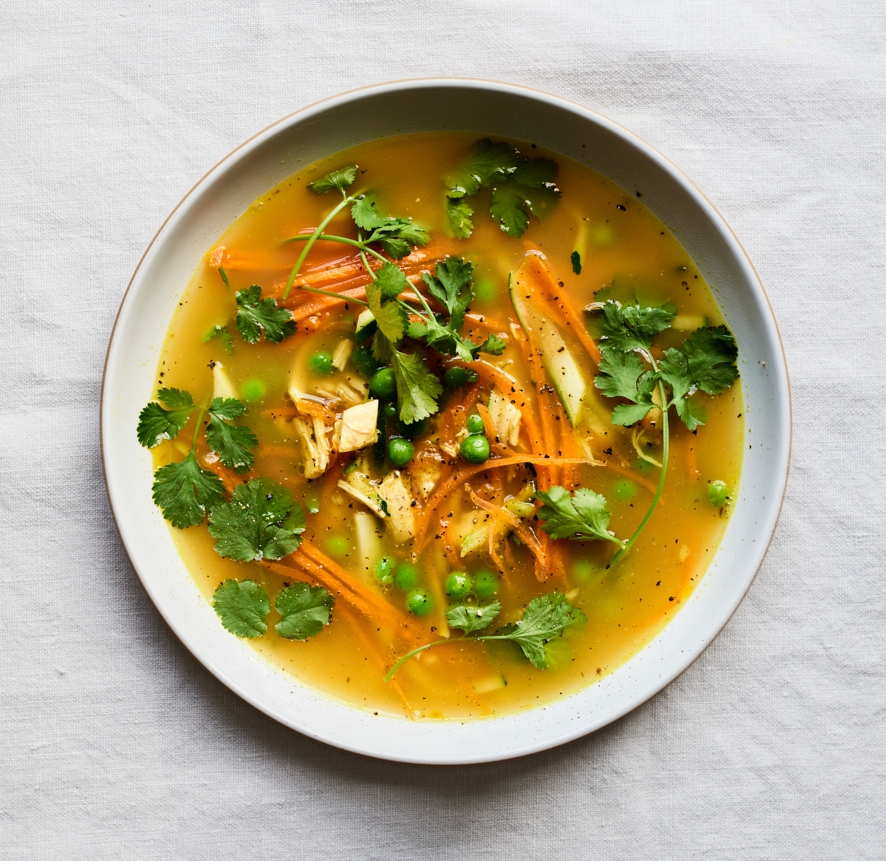22 Mar, 2019
Ingredient Spotlight: Oats
Our nutritionist Rob Hobson takes a deep dive into oats. Oats are a staple in our kitchen, whether it's for a big warming bowl of porridge or zesty, fresh bircher muesli. Rob not only looks at the nutritional benefits of oats, but also how opting for oat milk over dairy milk is more beneficial for the planet.
FoodOur nutritionist Rob Hobson takes a deep dive into oats. Oats are a staple in our kitchen, whether it's for a big warming bowl of porridge or zesty, fresh bircher muesli. Rob not only looks at the nutritional benefits of oats, but also how opting for oat milk over dairy milk is more beneficial for the planet.
What are the health benefits of oats and oat milk?
Oats are a wholegrain cereal brimming with goodness. As a great source of protein and fibre, they’re able to help keep you feeling full between meals and combat the type of craving that has you reaching for the biscuit tin mid-morning. Oats are also a rich source of essential micronutrients including folate, vitamin B1, iron, magnesium and zinc as well as antioxidant compounds called polyphenols, which may help to reduce blood pressure and improve blood flow around the body.
Oats can help to reduce cholesterol
These super wholegrains have been shown to possess a number of unique health benefits as a result of a type of soluble fibre known as beta glucans. These fibres form a thick gel in the gut that can bind with cholesterol and prevent its absorption, which is why oats are often considered to be a heart healthy food. Research has shown that eating 3g of oat beta glucans per day can help to reduce cholesterol by 5-10% over 4 weeks (50g serving of oats provides around 2g of beta glucans).
Oats can help to keep you feeling full and control blood sugar levels
The effect of beta glucans in the gut also means they’re helpful in the control of blood sugar levels as they delay emptying of the stomach and absorption of glucose into the bloodstream (which is especially useful for those who are overweight or have type 2 diabetes). Research has also suggested that beta glucans may promote the release of a hormone called Peptide YY, which encourages satiety (fullness).
Oat milk is health too…
Oat milk is made by soaking oats in water and then straining. This alternative drink to dairy has become hugely popular and a particularly good choice for anyone with food allergies or intolerances as it’s free of soy, nuts, lactose and gluten (if made with gluten-free oats). Oat milk doesn’t have as much protein as cow’s milk and needs to be fortified in order to get the same amount of calcium and other nutrients such as vitamin B12. Even in ‘milk’ form, oats still provide a source of beta glucans with a 250ml serving providing 1g.
Oat milk is good for the environment
Oat milk is a good choice for anyone with concerns over the environmental damage caused from the production of cow’s milk. According to a recent study carried out by Oxford university, oat milk requires much less water and land than that needed to produce cow’s milk and releases a fraction of the amount of greenhouses gases.
You can easily switch from dairy milk to oat milk given its versatility and you can include more oats in your diet by choosing dishes such as porridge, Bircher muesli, granola or breakfast smoothies.
Written by Rob Hobson. Rob Hobson is a registered nutritionist (BSc, MSc, AFN), published author and food writer. Rob has 15 years of experience working with some of the UK’s leading food companies, government agencies, NHS and private clients as well as regularly writing in the media for publications including the Daily Mail online.



